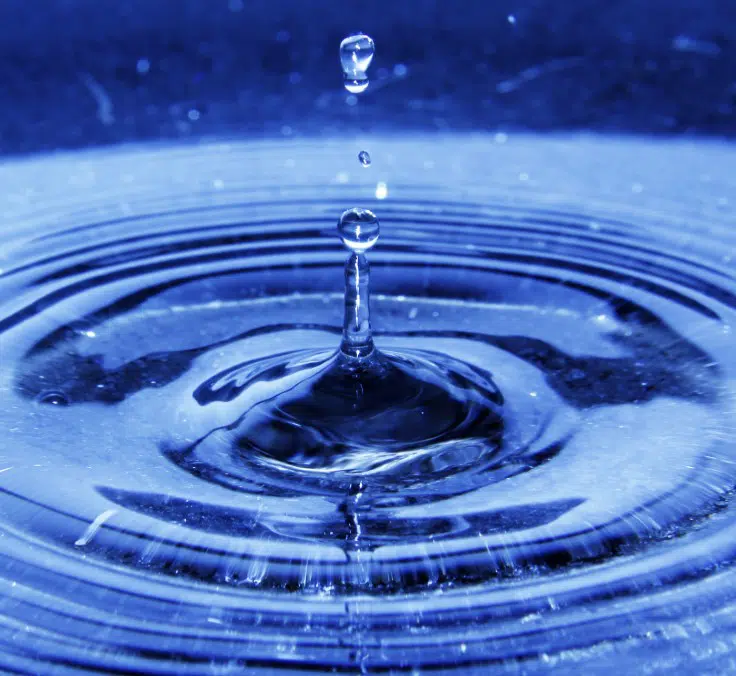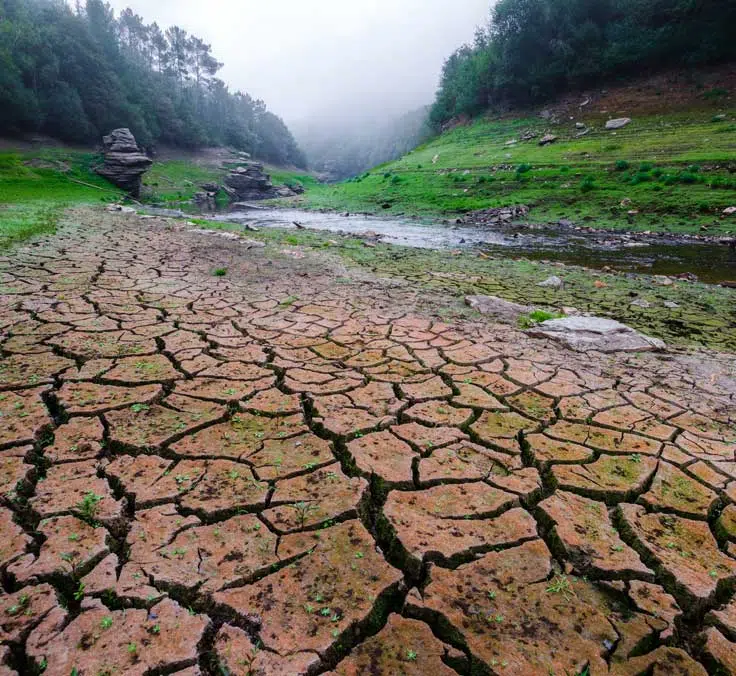SUSTAINABILITY | 03.22.2024
Drinking water: a right available to all?
Despite its importance in sustaining life, over 703 million people lack do not have access to drinking water. Population growth and climate change underscore the need for sustainable management of this resource, ensuring its accessibility to the majority of the population.
Life cannot exist without drinking water. Yet, this most basic need remains elusive for 703 million people worldwide. Every person should have the right to accessible water and sanitation services, located within one kilometer of their home, school, workplace, or healthcare facility, with a travel time for access not exceeding 30 minutes.
And it must be sufficient in quantity. In Spain, the figure is 133 liters per person per day for consumption, according to the latest report from the National Statistics Institute. Across Europe, the numbers vary from 78 liters in Slovakia to 300 liters in Switzerland, according to the European Federation of National Associations of Water Services (EurEau). However, these figures stand in contrast to the 2.2 billion people who lack access to safely managed water. For water to be considered safe, it must be free from microorganisms, chemicals, and radiological hazards that pose health risks. It should also be acceptable in terms of odor, color, and taste, and affordable, meaning that its cost does not exceed 3% of household income.
The good news is that there is enough water for everyone. The challenge lies in effective resource management. Nonetheless, there has been a positive trend. Between 2015 and 2022, the percentage of the global population with access to safely managed drinking water services increased from 69% to 73%. To sustain this progress, the UN highlights several key strategies, including increasing investment and training, promoting innovation and evidence-based action, enhancing coordination and intersectoral cooperation, and adopting a more integrated and holistic approach to water management.
So, what can we do? We face a significant challenge, where society must advocate for governments to invest in water research and development, while also promoting the inclusion of women, youth, and indigenous communities in water resource management. Failure to do so will result in millions of people continuing to die each year from water-related diseases like malaria and diarrhea. Loss of biodiversity and the deterioration of ecosystem resilience also impede countries’ progress and efforts toward achieving a more sustainable society. Heightened collective awareness of this issue would yield better results and greater sustainability and integrity within human and ecological systems.
Similarly, sustainable water management improves food and energy production, contributes to dignified employment and economic growth. It also preserves aquatic ecosystems and biodiversity, while tackling climate change. Limiting global warming to 1.5°C would roughly halve the proportion of the world’s population expected to suffer from water scarcity, though regional variations are significant. Scientists agree that staying below this threshold would help prevent the most severe climate impacts and maintain a habitable climate. However, current policies are point to a temperature increase of 2.8°C by the end of the century.. The seven largest emitters—China, the United States, India, the European Union, Indonesia, Russia, and Brazil—accounting for half of global greenhouse gas emissions in 2020, play a pivotal role in the planet’s future.
As such, MAPFRE has undertaken a project with the goal of reducing water consumption by 25% without compromising the well-being of its users. The target date is 2030, though results are already evident. In 2023, the Environmental Footprint Plan achieved a 14% reduction compared to 2019, greatly exceeding the anticipated annual decrease target of 6%. In addition to technical measures aimed at reducing consumption, such as installing equipment to lower pressure or implementing water cutoffs in faucets and toilets in Argentina, Mexico, Portugal, Paraguay, and Venezuela, MAPFRE also installed wastewater treatment plants for irrigation of green areas in Mexico and its new headquarters in Peru, as well as conducting leak control and open faucet monitoring in Panama and replacing bottled water with water filter jugs in Nicaragua and Venezuela.
The awareness and efficient water use plan executed by MAPFRE, along with practices adopted by other institutions and individuals, contribute to a collective movement that is part of a larger goal: ensuring the availability and sustainability of water for all inhabitants of the planet.
RELATED ARTICLES:



